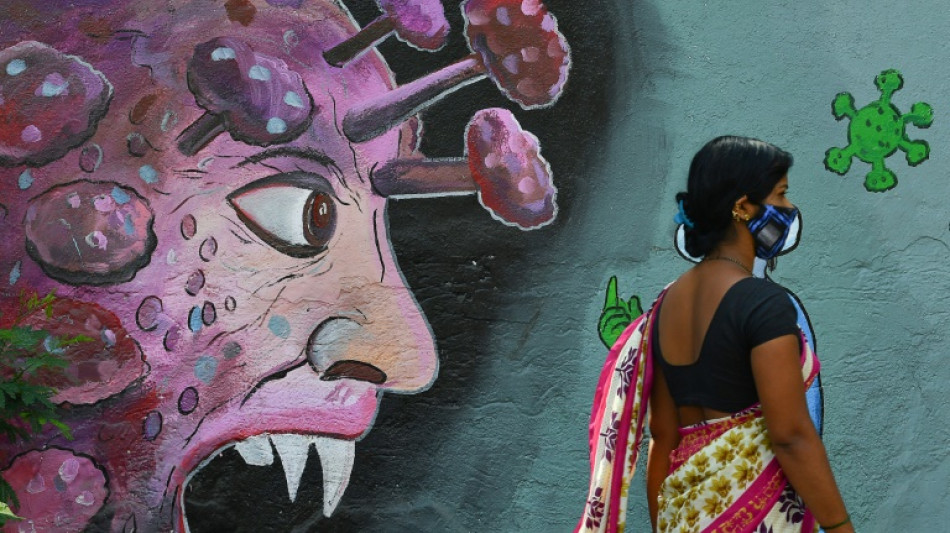
-
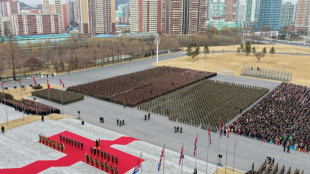 North Korea acknowledges its troops cleared mines for Russia
North Korea acknowledges its troops cleared mines for Russia
-
US unseals warrant for tanker seized off Venezuelan coast

-
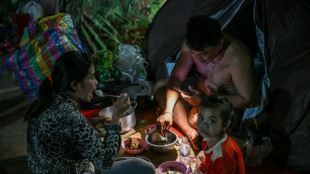 Cambodia says Thailand still bombing hours after Trump truce call
Cambodia says Thailand still bombing hours after Trump truce call
-
Machado urges pressure so Maduro understands 'he has to go'

-
 Leinster stutter before beating Leicester in Champions Cup
Leinster stutter before beating Leicester in Champions Cup
-
World stocks mostly slide, consolidating Fed-fuelled gains
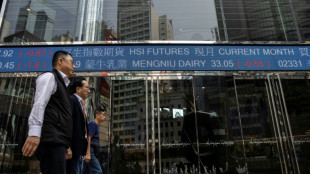
-
 Crypto firm Tether bids for Juventus, is quickly rebuffed
Crypto firm Tether bids for Juventus, is quickly rebuffed
-
Union sink second-placed Leipzig to climb in Bundesliga

-
 US Treasury lifts sanctions on Brazil Supreme Court justice
US Treasury lifts sanctions on Brazil Supreme Court justice
-
UK king shares 'good news' that cancer treatment will be reduced in 2026
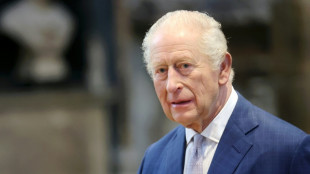
-
 Wembanyama expected to return for Spurs in NBA Cup clash with Thunder
Wembanyama expected to return for Spurs in NBA Cup clash with Thunder
-
Five takeaways from Luigi Mangione evidence hearings
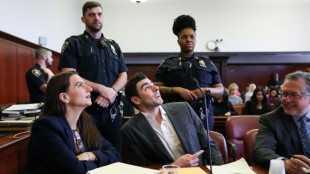
-
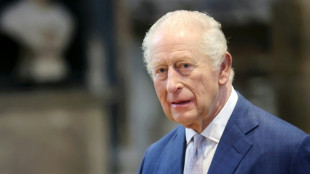 UK's king shares 'good news' that cancer treatment will be reduced in 2026
UK's king shares 'good news' that cancer treatment will be reduced in 2026
-
Steelers' Watt undergoes surgery to repair collapsed lung

-
 Iran detains Nobel-prize winner in 'brutal' arrest
Iran detains Nobel-prize winner in 'brutal' arrest
-
NBA Cup goes from 'outside the box' idea to smash hit

-
 UK health service battles 'super flu' outbreak
UK health service battles 'super flu' outbreak
-
Can Venezuela survive US targeting its oil tankers?

-
 Democrats release new cache of Epstein photos
Democrats release new cache of Epstein photos
-
Colombia's ELN guerrillas place communities in lockdown citing Trump 'intervention' threats

-
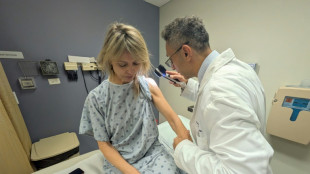 'Don't use them': Tanning beds triple skin cancer risk, study finds
'Don't use them': Tanning beds triple skin cancer risk, study finds
-
Nancy aims to restore Celtic faith with Scottish League Cup final win

-
 Argentina fly-half Albornoz signs for Toulon until 2030
Argentina fly-half Albornoz signs for Toulon until 2030
-
Trump says Thailand, Cambodia have agreed to stop border clashes
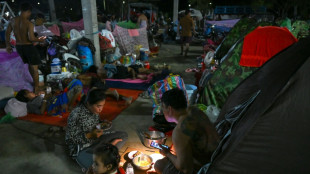
-
 Salah in Liverpool squad for Brighton after Slot talks - reports
Salah in Liverpool squad for Brighton after Slot talks - reports
-
Marseille coach tips Greenwood as 'potential Ballon d'Or'

-
 Draw marks 'starting gun' toward 2026 World Cup, Vancouver says
Draw marks 'starting gun' toward 2026 World Cup, Vancouver says
-
Thai PM says asked Trump to press Cambodia on border truce

-
 Salah admired from afar in his Egypt home village as club tensions swirl
Salah admired from afar in his Egypt home village as club tensions swirl
-
World stocks retrench, consolidating Fed-fuelled gains
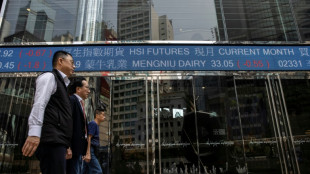
-
 Brazil left calls protests over bid to cut Bolsonaro jail time
Brazil left calls protests over bid to cut Bolsonaro jail time
-
Trump attack on Europe migration 'disaster' masks toughening policies
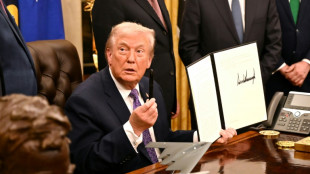
-
 US plan sees Ukraine joining EU in 2027, official tells AFP
US plan sees Ukraine joining EU in 2027, official tells AFP
-
'Chilling effect': Israel reforms raise press freedom fears
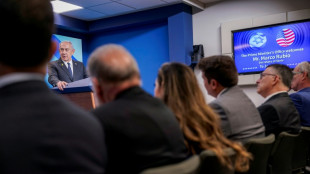
-
 Iran frees child bride sentenced to death over husband's killing: activists
Iran frees child bride sentenced to death over husband's killing: activists
-
No doubting Man City boss Guardiola's passion says Toure

-
 Youthful La Rochelle name teen captain for Champions Cup match in South Africa
Youthful La Rochelle name teen captain for Champions Cup match in South Africa
-
World stocks consolidate Fed-fuelled gains
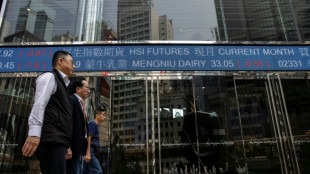
-
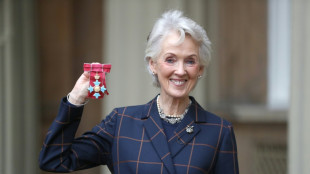 British 'Aga saga' author Joanna Trollope dies aged 82
British 'Aga saga' author Joanna Trollope dies aged 82
-
Man Utd sweat on Africa Cup of Nations trio

-
 EU agrees three-euro small parcel tax to tackle China flood
EU agrees three-euro small parcel tax to tackle China flood
-
Taylor Swift breaks down in Eras documentary over Southport attack

-
 Maresca 'relaxed' about Chelsea's rough patch
Maresca 'relaxed' about Chelsea's rough patch
-
France updates net-zero plan, with fossil fuel phaseout

-
 Nowhere to pray as logs choke flood-hit Indonesian mosque
Nowhere to pray as logs choke flood-hit Indonesian mosque
-
In Pakistan, 'Eternal Love' has no place on YouTube

-
 England bowling great Anderson named as Lancashire captain
England bowling great Anderson named as Lancashire captain
-
UK's King Charles to give personal TV message about cancer 'journey'
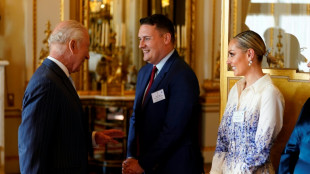
-
 Fit-again Jesus can be Arsenal's number one striker, says Arteta
Fit-again Jesus can be Arsenal's number one striker, says Arteta
-
Spain's ruling Socialists face sex scandal fallout among women voters
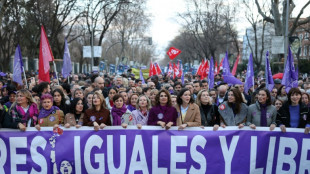

Researchers start to find clues on the trail of long Covid
Tens of millions of people across the world are thought to suffer from long Covid, but four years after the pandemic was declared this elusive condition still cannot be tested for -- let alone treated.
However research could be finally starting to find early clues on the trail of long Covid, raising hopes of future breakthroughs that may also illuminate other stubbornly ambiguous chronic syndromes.
Long Covid is the name given to a wide variety of symptoms still being suffered by people weeks and months after they first contracted the SARS-CoV-2 virus.
The most common are fatigue, shortness of breath, muscle pain and brain fog.
One notable study released last month showed there were significant differences in the proteins of the blood of more than 110 long Covid patients.
Onur Boyman, a Swiss researcher and senior author of the Science study, told AFP he believes this is a "central puzzle piece" in what keeps Covid raging for so long in the bodies of some people.
Part of the body's immune system called the complement system, which normally fights off infection by killing infected cells, remains active in people with long Covid, continuing to attack healthy targets and causing tissue damage, the researchers said.
Boyman said that when people recovered from long Covid, their complement system also improved, suggesting a strong link between the two.
"It shows that long Covid is a disease and you can actually measure it," Boyman said, adding the team hopes this could lead to a future test.
Researchers not involved in the study cautioned that this complement system "dysregulation" could not explain all the different ways that long Covid seems to attack patients.
Still, it is "great to see papers coming out now showing signals which might start to explain long Covid", said Claire Steves, professor of ageing and health at King's College London.
- 'Every aspect of my life' -
Lucia, a US-based long Covid sufferer who preferred not to give her last name, told AFP that "studies like these bring us a lot closer to understanding" the condition.
She pointed to another recent paper which found damage and fewer mitochondria in the muscles of long Covid patients, which could indicate why many patients become exhausted after even a small amount of exercise.
For Lucia, long Covid turned climbing up the stairs to her apartment into a daily battle.
When she first caught Covid in March 2020, Lucia said she could not have imagined how the condition would "affect every aspect of my life -- including socially and financially".
Lucia, a member of the Patient-Led Research Collaborative, emphasised that people with long Covid do not only have to deal with their many health issues.
They also have "to contend with disbelief or dismissal from the medical community or from within their social circles", she said.
The importance of supporting patients was highlighted by a BMJ study this week, which found that group rehab improved the quality of life of long Covid patients.
- Why has it been so hard? -
Ziyad Al-Aly, a clinical epidemiologist at Washington University in St Louis, said long Covid has been so elusive because it is a "multi-system disease".
"Our minds are trained to think about diseases based on organ systems" such as heart or lung disease, he told AFP.
But understanding the mechanisms behind long Covid could more broadly answer "why and how acute infections cause chronic disease", he said.
This means solving the mystery of long Covid may bolster the fight against other conditions such as chronic fatigue syndrome or lingering symptoms after influenza, increasingly referred to as "long flu".
While the true number of long Covid sufferers is difficult to determine, the World Health Organization says it could be between 10-20 percent of all people who have contracted the disease.
Research from the US Centers for Disease Control and Prevention has suggested that the percentage of people who get long Covid has decreased as new coronavirus variants have become less severe.
Vaccination against Covid has been shown to significantly reduce the chance that people will get long Covid, emphasising the importance of booster shots, researchers say.
P.M.Smith--AMWN
